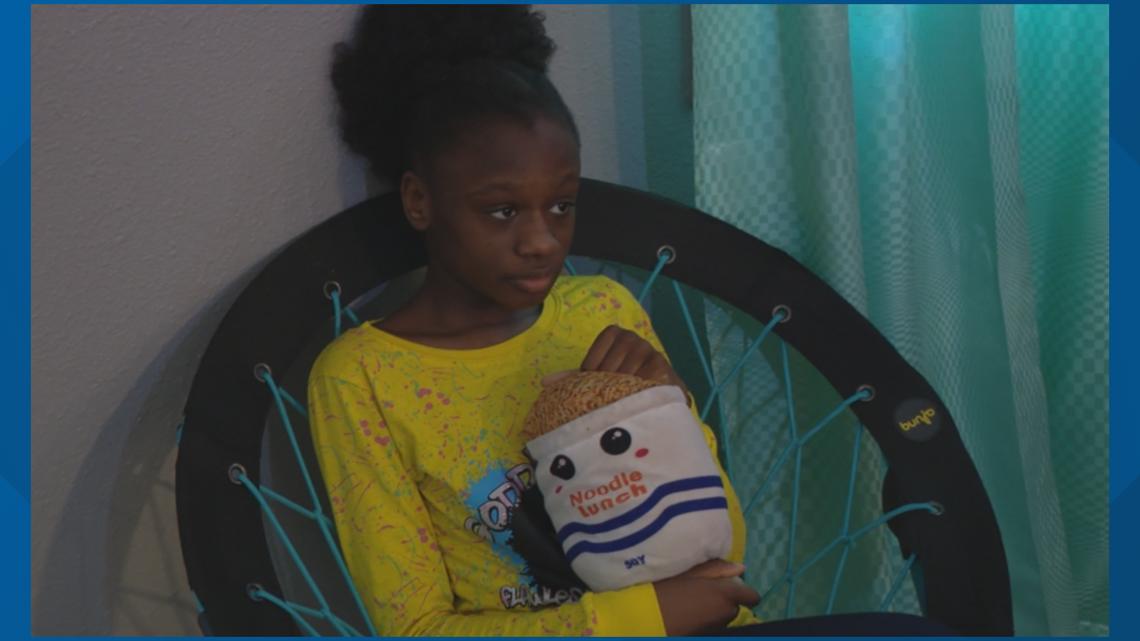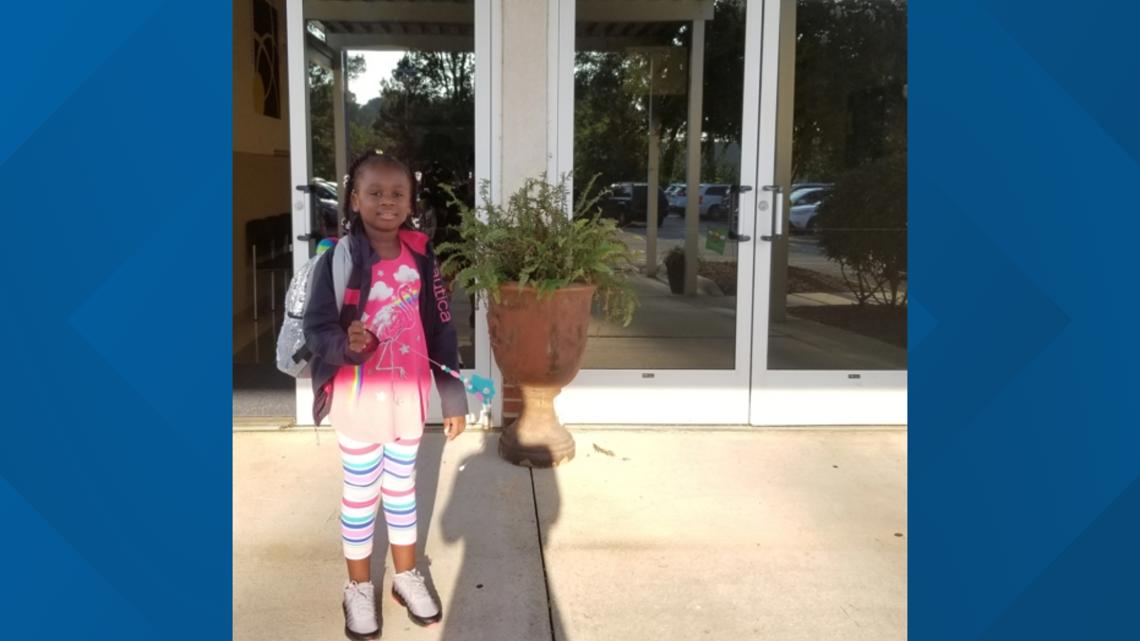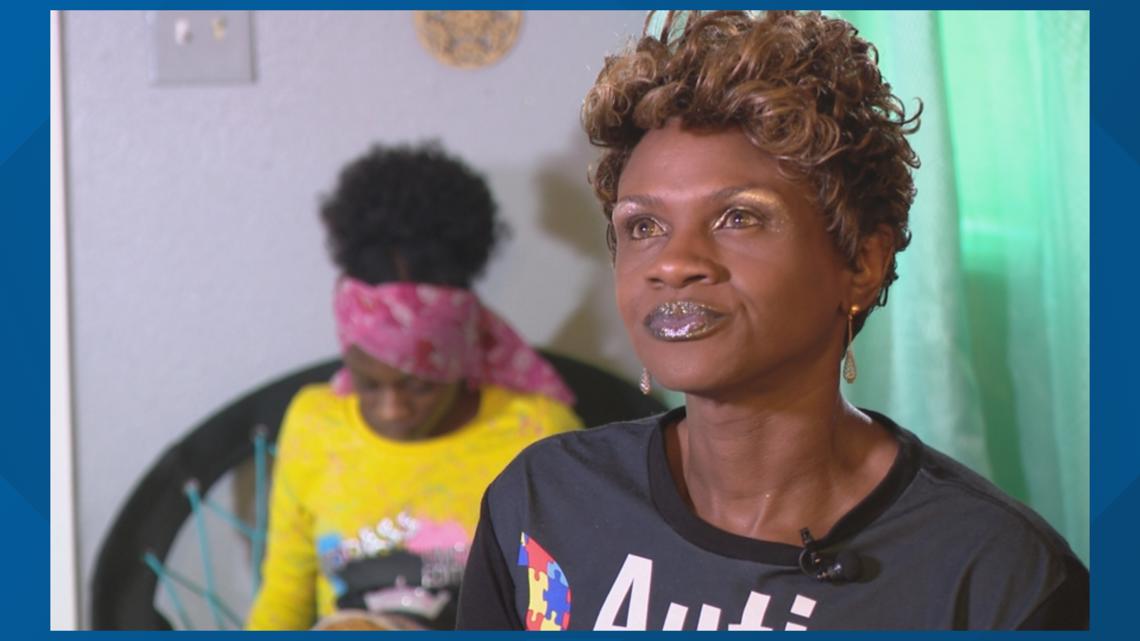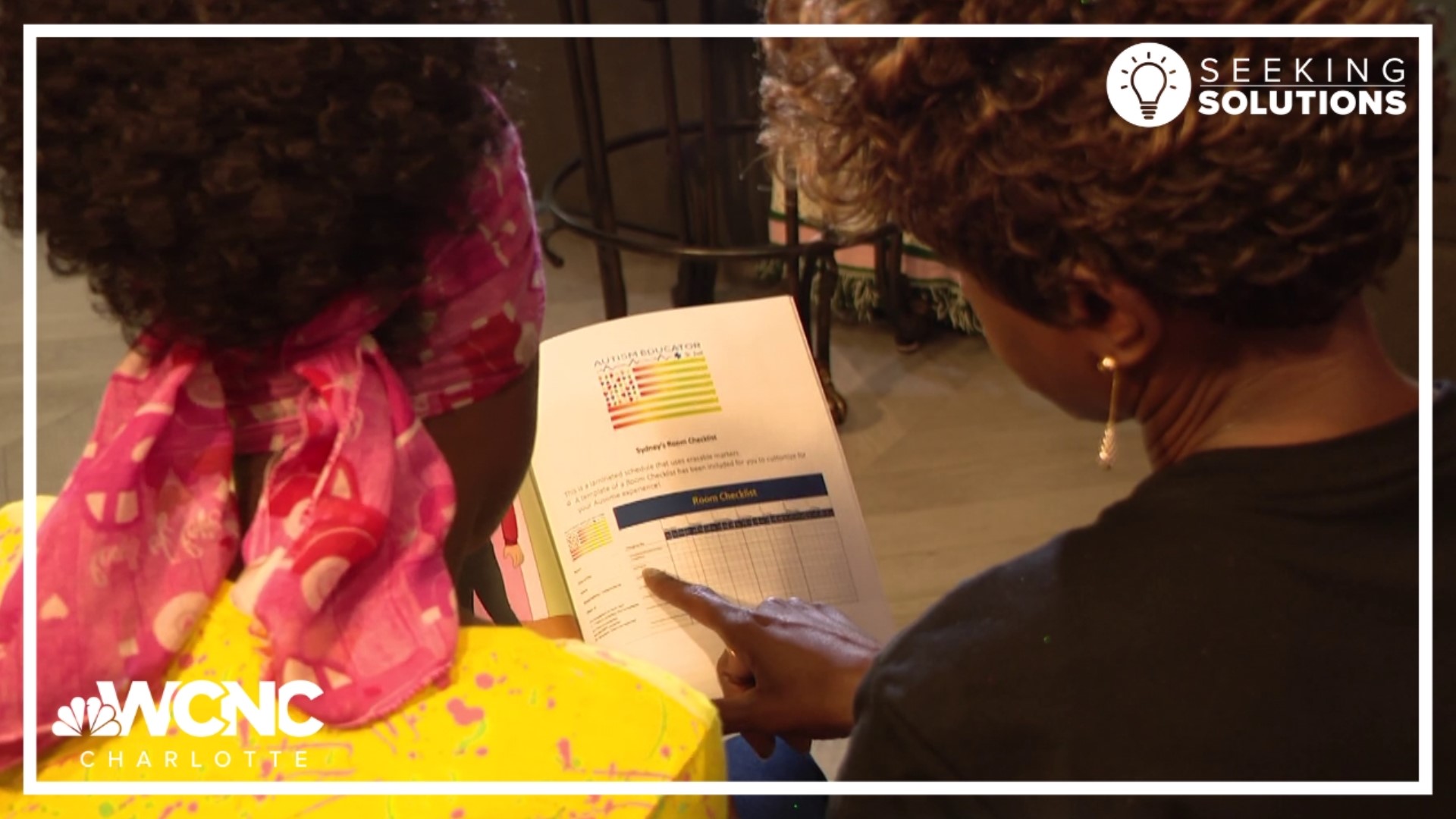GASTON COUNTY, N.C. — In a state where public schools rely heavily on suspending and expelling the most vulnerable children, Black students with disabilities miss out on more classroom learning than their peers, records show.
A WCNC Charlotte investigation previously found North Carolina suspends and expels students with disabilities at length more than every other state in the country, per capita. The data shows most of those kids are Black.
Since WCNC Charlotte's reporting began, dozens of parents representing kids in more than 30 districts across the state have shared their experiences.
IF YOU HAVE A CHILD WITH A DISABILITY WHO EXPERIENCED THIS KIND OF DISCIPLINE, SHARE YOUR EXPERIENCE HERE


Sharlene Smith is one of those parents. The Gaston County mother said discriminatory discipline is standing in the way of her daughter's progress.
"It's devastating. It's traumatizing. It's embarrassing. It's deflating," Smith said of the challenges her 12-year-old daughter Sydney, diagnosed with autism and ADHD, has faced. "It's a very demeaning feeling."
Smith felt so confident about Sydney's future, she wrote a book called "Sydney Goes to School" about all of her successes in elementary school. Then, Sydney entered sixth grade.
"Now we have to write a new children's book that says, 'Sydney goes to home school,'" Smith said frustrated.


Records show Sydney faced 14 days of out-of-school suspension last school year. A required review concluded Sydney's disability caused her aggressive behavior. The school district, with support from Sydney's doctor, eventually sent her home for the rest of the year.
Smith said Sydney has remained homebound ever since, provided just an hour of instruction a day. It's especially painful considering her mother is a first-generation high school graduate, former middle school teacher and current college instructor.
"I feel like an idiot now that I wrote this," she said. "It crushes me to know that in spite of everything I have done, that I can't guarantee an education for my own child."
Sydney's experience is representative of a larger problem. Kids with disabilities who look like her are disproportionately disciplined.


Data shows other school districts struggle even more with disciplining Black students with disabilities In fact, more than two dozen school districts in North Carolina are on a state warning list for "Significant Disproportionality."
Rowan-Salisbury Schools is on the list.
"For us it's not about being on a list. It really is about doing what's right for kids." RSS Director of Communications Michelle Shue said. "We're glad to know that that's an issue and were going to work on that."
Charlotte-Mecklenburg Schools is also on the state warning list.
"I think CMS is starting to lean in to the work of fixing some of those issues," Charlotte-Mecklenburg Association of Educators Vice President Rae LeGrone said. "I feel like the district is trying to improve. I feel like their data-focused governance is a step in the right direction."
Both districts report enhanced training and more focused efforts to be fair and consistent.


The National Education Association has also made this a priority, noting years of systemic racism and unconscious bias. President Becky Pringle said the group is pushing for policies focused on restorative practices that, instead of penalizing students, aim to address the root cause of their misbehavior.
"We are working with educators, making sure they have the knowledge, skills and abilities," Pringle told WCNC Charlotte. "We're learning how to create the kind of environment that is safe and inclusive and welcoming and if something happens, how best to address that."
Smith knows her daughter's life depends on her school district better understanding and addressing her needs now before one of her outbursts leads to something irreversible.
"I'm literally every single solitary day in a fight for her life," Smith said. "When she does this, even at 15 and she does this at Carowinds, you're going to lock her up. That's what happens to our kids."


Smith recently filed a complaint with the state Department of Public Instruction. Among other things, she accused Gaston County Schools of failing to provide Sydney with a Free Appropriate Public Education, discriminatory discipline and violating her disability rights.
The district declined to go into detail about Sydney's case, citing student privacy, but in a statement said Gaston County Schools takes the mother's concerns "seriously" and has worked with her and continues to do so, "because we also want what is best for her daughter." Gaston County Schools is not on the state's significant disproportionality list.
"Representatives of Gaston County Schools have communicated/met with Ms. Smith on numerous occasions to discuss her concerns and address how the district can provide support for her daughter ..." Chief Communications Officer Todd Hagans said in a statement. "... As you pointed out, students are better served at school, and we agree; however, there are situations when students receive educational services in an alternate setting (homebound or modified day placement) – this may be necessary due to a medical issue or a discipline issue, for example. When a student is homebound, it is our practice that the homebound placement is done only under the direction of a doctor/medical professional or when it is determined that the student is a harm to himself or herself and/or to others. Homebound education is provided in person or virtually. Again, it is done for one of two reasons; otherwise, we strive to provide for students in a school setting."


Smith and the district continue negotiating a solution for Sydney. She's hopeful her daughter will be able to attend Melmark, a specialized school in Charlotte for kids with profound disabilities.
In the meantime, Sydney's receiving less of an education than her former classmates.
"It is absolutely exhausting," her mother said. "It makes me more than sad. It enrages me. I have no idea where this is going to go. I have no clue. She wants to do good."
Contact Nate Morabito at nmorabito@wcnc.com and follow him on Facebook, X and Instagram.
WCNC Charlotte is committed to reporting on the issues facing the communities we serve. We tell the stories of people working to solve persistent social problems. We examine how problems can be solved or addressed to improve the quality of life and make a positive difference. WCNC Charlotte is seeking solutions for you. Send your tips or questions to newstips@wcnc.com.

